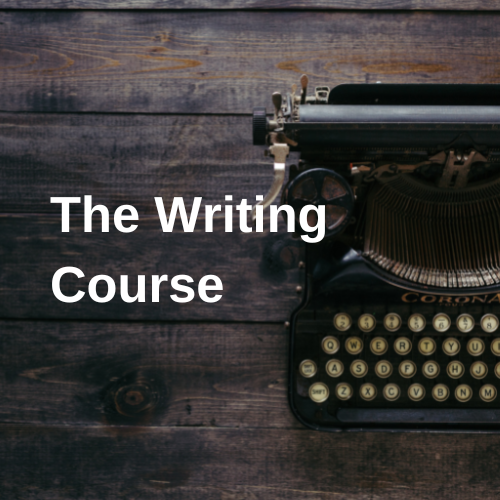How to build your PhD research skills
As I’ve said in previous videos, the goal of a PhD is to develop and then demonstrate the skills of a professional academic researcher.
But one of the big difficulties of PhD research is that, in most cases, there isn’t a clear structure to help you improve your skills. And in the absence of that structure, many students I speak to just focus on setting challenging goals and working hard to achieve them.
The problem is that working hard towards a difficult goal doesn’t necessarily help you develop your skills, and sometimes the stress of working this way can actually make you less capable.
So in this video I’m going to break down 6 of the most common mistakes that hold back your skill development and I’ll talk about what you should do instead.
Mistake #1: spending too long planning
As I mentioned in my previous video on making an original contribution to knowledge, a lot of PhD students spend months or years reading and writing and planning, perhaps working towards a research proposal, but without getting practical experience with the techniques they plan to use.
This isn’t always the student’s fault. Sometimes it’s supervisors who want you to keep writing until they’re satisfied that you know the literature and the theory well enough and have a clear and realistic research plan.
But you’re much more likely to have a good understanding of the literature if you’ve used some of the techniques, and you’re much more likely to have a clear and realistic research plan if you have a bit of practical experience.
The harsh reality is that you simply cannot learn to do research just by reading. It’s like trying to become a professional chef by spending 3 years reading recipe books without setting foot in a kitchen; it’s just not going to work.
So if I could give only one tip in this video, I’d say to start getting practical experience of your research techniques as early as possible.
Mistake #2: Setting goals too high
The second common mistake is setting your initial goals far too high.
This is a natural temptation, in part because, in the absence of a syllabus, it’s not entirely clear what standard you’re actually supposed to achieve.
It’s a bit like doing the high jump in the dark- if you don’t know where the bar is, it makes sense to jump as high as possible.
The problem is that if the gap between your immediate ambition and your current level of skill is too big, then it doesn’t matter how hard you work, you won’t reach your goals.
The wording here is important. It’s about your immediate ambition and your current skill.
So what we need to do is aim lower initially. Set immediate goals that are within reach and then gradually raise the bar as your skills develop.
The way to do this is to start with the simplest possible version of your study or experiment, try it out on a small scale, and give yourself the opportunity to make mistakes, to learn from them and to adapt.
So whatever kind of research you’re doing, try to go through the complete cycle of gathering, analysing and presenting data on a small scale before you commit to a large scale project.
I’m not talking about a formal pilot study here. I’m talking about informal practice.
For example, if you’re doing interviews, practice interviewing one person (even if it’s just a friend, rather than a member of your target sample), and then try transcribing that interview and doing some basic analysis. You won’t use this data, but it’s all about trying things out, getting experience and letting yourself make mistakes when it doesn’t matter.
By going through the whole cycle on a small scale, you practice every step instead of going out and gathering all your real data, then having to learn how to do analysis on a huge scale under massive pressure.
Mistake #3 Trying to show how good you are/ trying to hide the gaps
Setting your initial goals much lower means acknowledging where your current level of skill is.
This is not easy… A lot of PhD students suffer from impostor syndrome, and they don’t want anyone to discover the gaps in their knowledge. I think a lot of this comes from the education system, where your identity as a pupil or a student is tied up in your grades.
But being an academic is not about showing how smart you are or how much you know, it’s about embracing what you don’t know. It’s about getting curious and excited about learning something new, which you cannot do if you’re insecure or ashamed of the gaps in your knowledge or skills.
If you try to hide those gaps by setting yourself a wildly ambitious project, you’ll always have that inner conflict between your external goals and your inner beliefs.
So be a bit kinder to yourself, acknowledge what you don’t know, and embrace the opportunity to learn.
Mistake #4: Multitasking
Inevitably, as you’re working, you’ll hit some kind of problem. A common response to this is to either just keep going or to switch to another task.
But real progress, both in research and in the development of your skills, doesn’t happen when everything goes to plan. Progress happens when you solve difficult problems.
If you switch to working on something else, you stay busy, but you deny yourself the opportunity to solve the problem, and you deny yourself the opportunity to learn.
Ultimately, all you do is build up more and more unsolved problems, while also training the habit of avoiding them.
So when you hit a block, slow down and engage with the problems that arise.
Mistake #5: Working too fast
In a PhD, there can be a lot of pressure to get results and you might think that you have to work faster to get them.
But one of the biggest shifts in my own PhD was when I slowed down and started doing experiments as carefully as I could.
When I talk about working with care (especially in the context of writing), people often bring up the issue of perfectionism. But what they are usually describing isn’t perfectionism but fear of making a decision or a mistake.
What I mean by putting care into your work is doing it to the best of your ability, but not worrying too much about the end result, focusing on the process, and the care that goes into the process, rather than the outcome.
This is a subtle point, but the difference it makes can be profound.
So let’s say you try an experiment but you kinda rush it and don’t give it your full attention and care. Now if it doesn’t work, is that because the design of the experiment, or a particular step in the process, is wrong? Or is it that you just rushed? Or is it that you aren’t skilled enough? Or is it that the equipment you have is faulty?
So if you rush and it goes wrong it can be difficult to identify the problem, but what if the experiment seems to go right? If it appears to give the result you were looking for, how can you trust it or defend it if you know your execution was sloppy.
But if you give every step your full care and undivided attention, you give yourself the best chance of success and you’re much more likely to be able to spot and correct any problems as you go.
Then, if it doesn’t work, you can adapt something and try again.
I think this care and attention is important not only when you’re doing something new, but also when you’re doing routine tasks that you’ve done many times before, because the basics are still important no matter how experienced you get.
Mistake #6 Not taking care of yourself…
Some people assume that suffering is an inevitable or necessary part of the process, and that working yourself to the limit is a sign of dedication.
But if you find yourself constantly stressed or sleep deprived, this is going to massively affect your ability to learn and to solve problems, which can make the stress much worse.
Of course you’ll need to work hard, but just like a professional athlete you also need to think about managing the effort to avoid burnout. In other words, you need to take care of yourself.
I think there are two sides to this. One is taking breaks during the working day and giving yourself time to think. That means stepping away from the work, but also stepping away from email and social media so you don’t have all that incoming information to process.
In my own PhD I did this by taking walks around the campus so I could relax and think through problems in my research, and this, along with slowing down and taking more care over my work, was one of the key habits that saved my PhD.
The other aspect of taking care of yourself is making sure you maintain other aspects of your life, including social connections, a good diet, exercise and sleep.
If you feel like you aren’t getting enough done, you might think that there’s no time to do all these things, but they’re an essential part of maintaining your energy and cognitive ability, and it’s part of the discipline you need to succeed in the long term.

